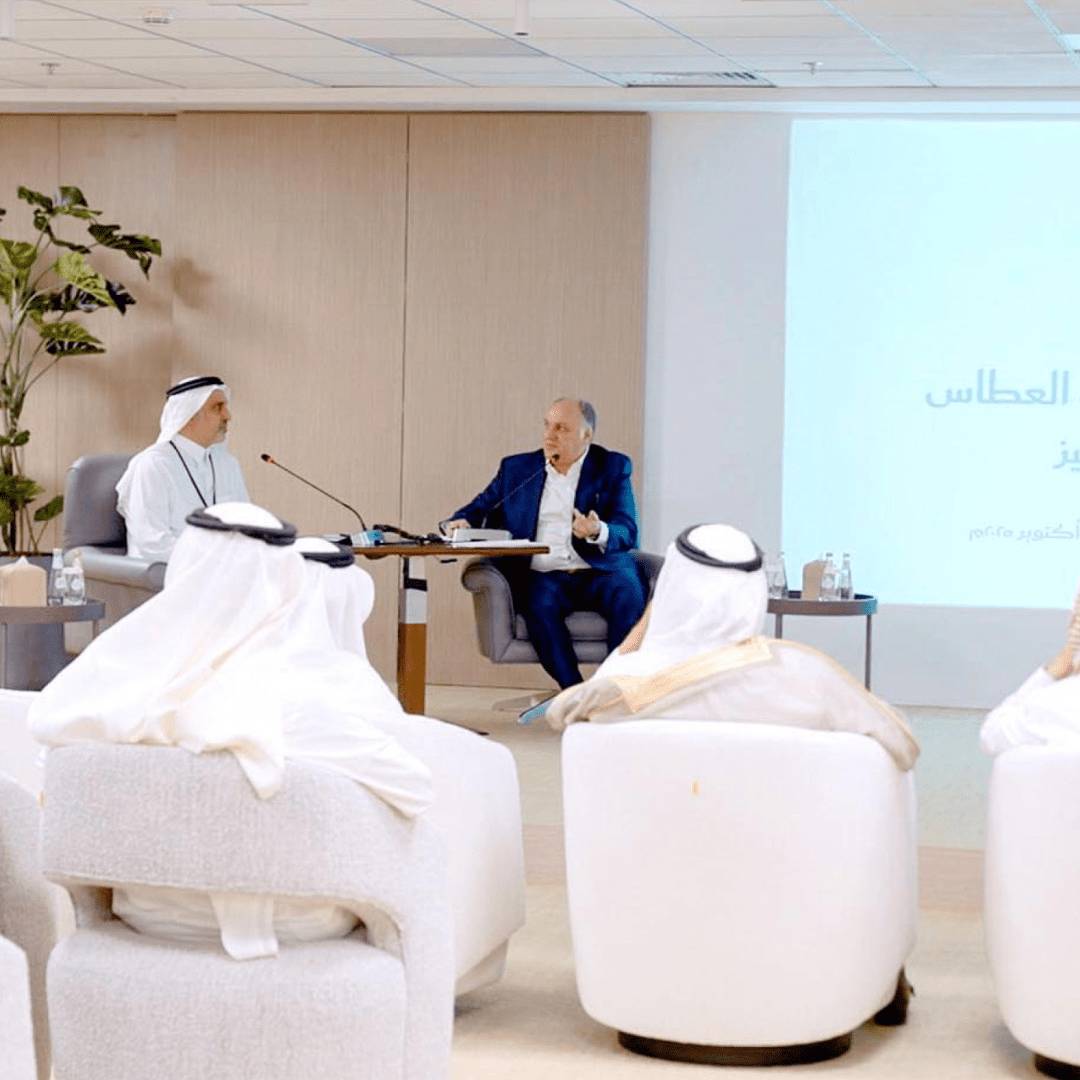2025-10-27
Under the patronage and in the presence of HRH Prince Turki AlFaisal, Chairman of the Board of Directors of the King Faisal Center for Research and Islamic Studies, the Center organized on Monday, October 27 2025, a lecture titled "Syed Muhammad Naquib al-Attas and His Distinguished Intellectual Legacy", delivered by Professor Masoud Idris, Professor of Islamic History and Civilization at the University of Sharjah, as part of the Center’s cultural program, with the attendance of a select group of researchers, academics, and those interested in Islamic thought, philosophy, and education.
The lecture began with opening remarks by Dr. Abdullah Hamidaddin, Assistant Secretary-General for Scientific Affairs at KFCRIS, who noted that revisiting Al-Attas’ intellectual project is not a celebration of the past, but a means of reconnecting Islamic thought with its capacity to generate meaning in the present. He emphasized that reading Al-Attas’ works allows for a deeper understanding of the contemporary intellectual crisis facing Muslims — caught between fascination with modernity and disconnection from their roots. He added that through these events, the Center seeks to highlight thinkers whose contributions have reshaped the relationship between knowledge, religion, and humankind, noting that Al-Attas’ thought stands as a rare example combining authenticity with philosophical depth.
Dr. Abdullah Hamidaddin further stated that Al-Attas was not merely a theorist, but the founder of a comprehensive project to rebuild Islamic consciousness on epistemological and ethical foundations, underscoring the importance of engaging with his ideas to better understand the challenges of secularization and the separation of values from knowledge in today’s world.
Professor Masood Idris then presented the main pillars of Al-Attas’ thought, explaining that he offered a comprehensive metaphysical vision of existence, knowledge, and the human being — grounded in revelation as the highest source of knowledge, as opposed to the Western epistemological model that separates reason from the unseen. He noted that Al-Attas attributed the crisis of the Muslim world to the loss of the Islamic worldview and of adab — placing things in their proper place based on true knowledge — which he regarded as the ethical and epistemological foundation of Islamic civilization.
Idris highlighted Al-Attas’ distinction between acceptable practical secularization that regulates daily life, and the rejected intellectual secularization that denies the unseen and eliminates absolutes from the epistemic domain. He argued that the solution lies in balanced development that combines conscious engagement with the modern world while preserving the metaphysical truths upon which Islam is founded.
Addressing justice, knowledge, and education, Idris explained that justice, in Al-Attas’ conception, means placing things in their rightful place, and cannot be achieved without knowledge. The absence of true knowledge leads to the absence of justice, and consequently to societal disorder. Therefore, Al-Attas called for an Islamic education that reintegrates knowledge with metaphysics and adab, and moves away from reducing religion to purely legalistic discourse or technical education detached from values.
Idris also discussed Al-Attas’ view of Prophet Muhammad (peace be upon him) as the perfect exemplar for humanity — a perspective that positions the Prophetic Message as the highest reference for understanding existence, knowledge, and ethics, restoring the Qur’an and Sunnah to their central role as sources of cosmic and spiritual consciousness.
Regarding modern Western thought, Idris explained that Al-Attas did not advocate total rejection, but rather a critical reading that benefits from scientific advancement without severing its connection from Islamic metaphysics. Islam, in his view, does not oppose science, but provides science with a moral purpose, making knowledge a path toward justice and worship, rather than power and material gain.
He noted that Al-Attas’ project integrates metaphysics, epistemology, ethics, and education, offering intellectual tools that enable Muslims to resist secularization and epistemic fragmentation, and to restore balance between knowledge and faith. Idris emphasized that reviving the concept of adab, as defined by Al-Attas, is the first step toward reform, as it unifies knowledge and conduct and restores justice to its Qur’anic meaning — rooted in knowing the truth and aligning with it.
At the conclusion of the lecture, an open discussion took place between Idris and the audience, addressing the educational foundations of Al-Attas’ thought, its impact on curriculum development, and the relevance of his approach in confronting contemporary intellectual challenges.
This event comes as part of the King Faisal Center’s ongoing efforts to enrich philosophical and intellectual discourse, to revive the contributions of influential thinkers in shaping human consciousness, and to enhance the presence of Islamic thought in the global cultural landscape.

